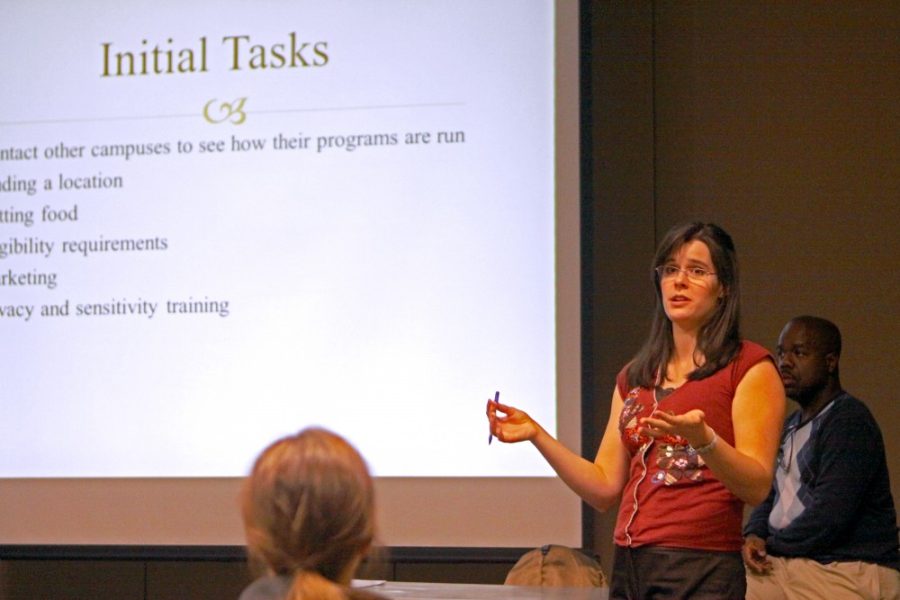The initial meeting for a proposed food pantry was held to address student food insecurity on Wednesday.
The meeting was led by Hannah Lozon, the coordinator of Social Justice education, who began by showing a clip from NBC Nightly News on the growing number of “food pantries” that have been spreading on university campuses across the nation. Due to the rising cost of tuition, many students are struggling to make ends meet, and UA students are no exception.
However, the issue of food insecurity is one that most staff members, like Renee Skau, community director for Kaibab-Huachuca Residence Hall, are aware of only through secondary sources, according to her.
Many students struggling with the issue of hunger are quite sensitive about the topic, Lozon said, so it’s necessary for staff and peers to look for signs, such as not showing up to class, or going to events solely where food is served and going through the line numerous times.
About 20 students attended the meeting, and had several ideas on tackling the question of food insecurity, including partnering with local food banks, which, while are good resources for food, are not ideal for students with little or no income and no transportation. Other ideas from the grassroots organization ranged from collecting food from residence halls to holding food drives with Greek Life organizations and other student clubs.
For Jessica Crombie, coordinator of leadership development, the Food Pantry creates a “great possibility for students to advocate for other students,” she said. Other students also said they were happy to support their community members.
“After meeting a student who dealt with the issue I was inspired to look into it,” said Stephanie Hanson, a graduate student in education. “It touches your heart. An institution of higher learning should take care of the community.”
With such a great need, the staff and students of the food pantry have many proposals to get started, but said they are mostly eager to work on a “grassroots project, which gives us the chance to start something new,” according to Evan Smoller, an undeclared freshman.
In order to fully get started, the food pantry is in need of students to fill up their board of directors, Lozon said, and are looking for students who can volunteer for 10 or more hours a week.
Members of the Food Pantry project said they are also hoping to make the pantry an entirely student-led project. According to Andrew Campbell, assistant director of residential education, the staff working Social Justice — an entity of Residence Life — “are dedicated to the struggles of students, and we are proud of what students want to do.”









